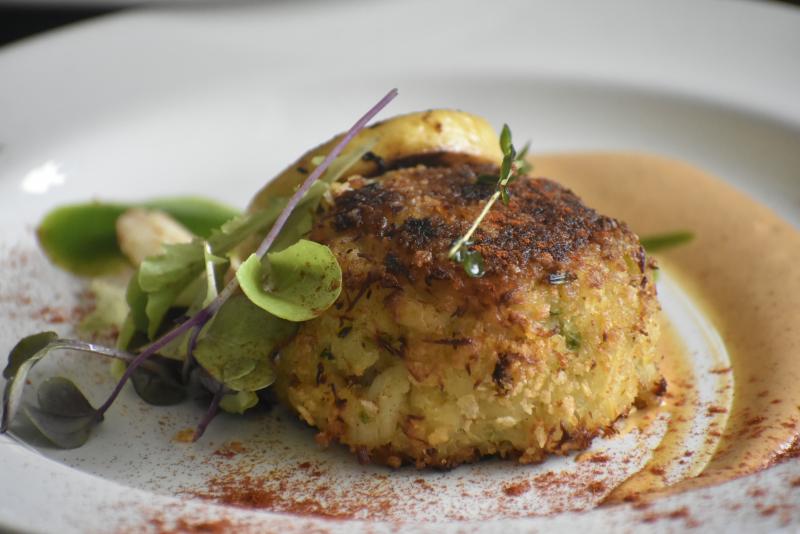
Is the so-called “ropeless” fishing gear the silver bullet for solving the perceived problem of marine mammal interactions in California’s crab fisheries?
Several profit-driven environmental groups, including Oceana would like the public and the California Department of Fish and Wildlife (CDFW) to believe these baseless claims.
That’s because these groups are ramping up efforts to force California’s historic and economically most important fishery – which helps create millions of dollars annually for working families – to adopt expensive, impractical and unworkable new fishing gear, which would force most crab fishermen out of business.
But the problem is that neither the science, nor any other reliable data, support their false claims. “Ropeless” gear is not a silver bullet – in fact, it’s actually dangerous to sea life – and ironically, it still has ropes. Nor are marine mammal populations at any significant risk from existing crab gear.
Francine Kershaw, staff scientist with the Natural Resources Defense Council, has misleadingly asserted that, “Off the West Coast, the number of deaths of humpback whales caused by entanglements are now high enough for the population to slip into decline.”
But the truth is there have only been four mortalities attributed to California commercial Dungeness crab gear since 2013, and none during the last two seasons. However, strikes by large ships likely cause 50-150 whale deaths a year off the West Coast, according to the Cascadia Research Collective (CRC), a highly respected marine mammal study center.
What’s more, CRC’s most recent report from March 2020 shows that through the end of 2018, there were more than 5,000 blue and humpback whales off the coast of California and Oregon. This is far more than the previously thought 3,500 figure and nowhere near dangerous levels.
One of the problems with “ropeless” gear is that it’s a misleading term used by the profit-driven environmental groups to make it seem harmless. It has buoy lines packed on top of the trap with an acoustic release trigger that in theory allows the buoy to go to the surface when activated. In practice, this adds to the problem of lost gear with ropes and buoys attached.
Currently, fishing traps cost between $160-$225 each. But the pop-up “ropeless” gear will cost as much as $2,500 per trap. That means for a 500-trap tier operation to adapt an existing gear allotment to 100 percent pop-up gear, it would cost between $360,000 to $1,255,000.
All this extra money would be thrown at gear that is unmanageably slow and prone to be lost at sea. It would make profit impossible. And importantly, it would make marine mammal interactions with lost gear more frequent, not less.
The commercial fishing industry is committed to our long standing and successful work to reduce interactions between fishing gear and all marine mammals. The California Coast Crab Association members have developed alternative gear that’s better, more practical, affordable and, most importantly, based on the best available science, something that “ropeless” gear is not. For many years, our commercial fleet, including fishermen based in Sausalito and Bodega Bay, have been spending extra money to make modifications to their gear – and limit some fishing seasons – to mitigate the risk to marine mammals. These common sense measures have resulted in huge reductions in interactions.
“Ropeless” gear and other new rules which the CDFW implemented last week constitutes a solution in search of a problem. These “solutions” being pushed by outside interests must be seriously reconsidered to reflect the negligible impact of the California crab fishery, its cultural and economic importance to our coastal communities and the devastating potential consequences of the implementation of ideas like “ropeless” gear. The technology is faulty and the economics of converting and maintaining this type of system are unsustainable.
In sum, if the CDFW doesn’t ignore the political pressure from special interest, profit-driven environmental groups, the continuation of California’s crab fishery – and the thousands of families who depend on it – and indeed the future of the entire West Coast commercial fishing industry, will be in serious jeopardy.
Johnny Atkinson is owner of New Rayann Sportfishing in Sausalito, a lifelong crab fisherman and member of the California Coast Crab Association.
The Link LonkNovember 09, 2020 at 02:43AM
https://ift.tt/35b4ehe
Marin Voice: Crab fisherman concerned ‘ropeless’ gear not best answer - Marin Independent Journal
https://ift.tt/2MkGRbk
Crab

No comments:
Post a Comment